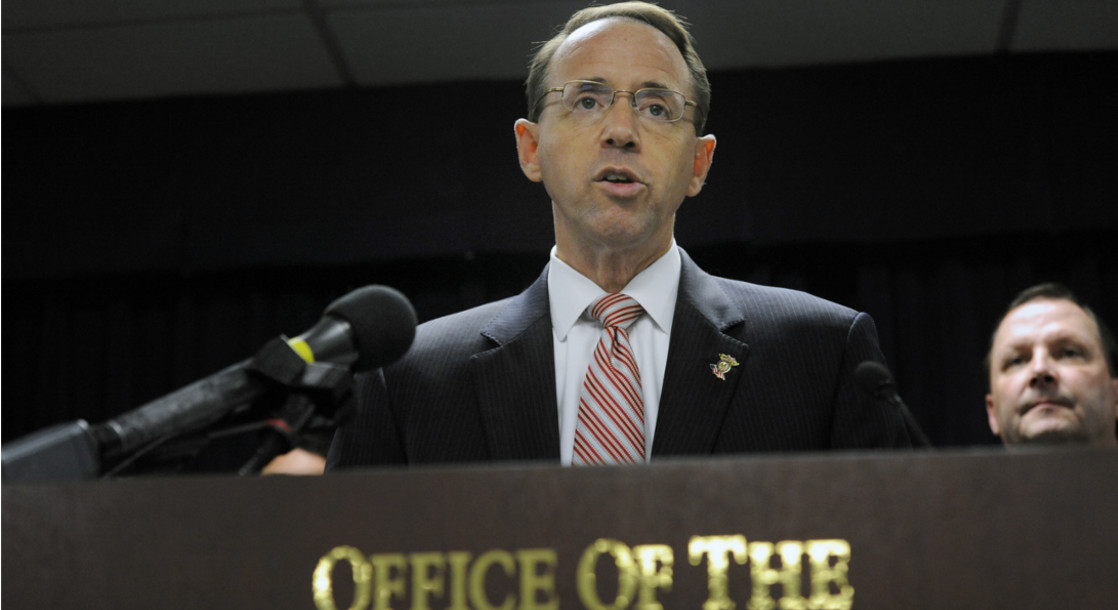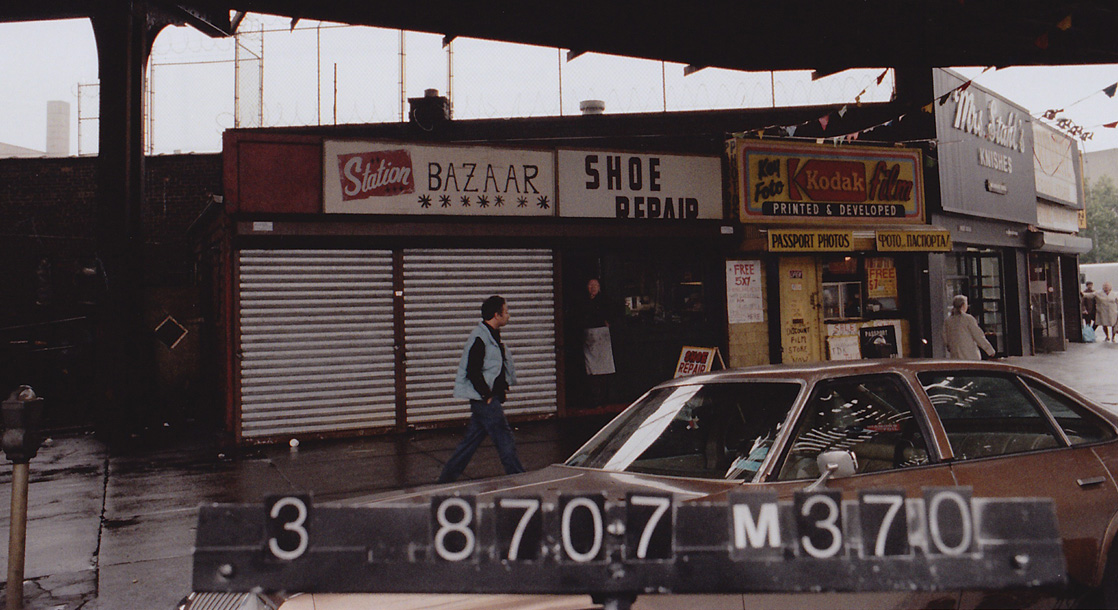Although most of the noise surrounding U.S. Attorney General Jeff Sessions’ feared marijuana crackdown seems to have calmed down, the word on the street is that the Justice Department is still considering whether to nix an Obama-era policy that has given states the freedom to experiment with legal weed for the past several years.
Earlier this week, during a speech at the Heritage Foundation, Deputy Attorney General Rod Rosenstein said the Justice Department would continue to review the Cole Memo in order to determine whether the policy, which has been in place since 2013, is solid or needs a complete overhaul to achieve the objectives of the Trump administration.
"We are reviewing that policy. We haven't changed it, but we are reviewing it. We're looking at the states that have legalized or decriminalized marijuana, trying to evaluate what the impact is," Rosenstein said. "And I think there is some pretty significant evidence that marijuana turns out to be more harmful than a lot of people anticipated, and it's more difficult to regulate than I think was contemplated ideally by some of those states."
The Cole Memo was designed to allow states to legalize marijuana with minimal federal interference. The policy suggests that as long as states adhere to a set of specific guidelines, including keeping marijuana out of the hands of kids and monitoring stoned driving, the Justice Department will not lean on federal law and wreak havoc in those jurisdictions.
For now, a Justice Department task force has determined that that the Trump administration should not interfere in state marijuana laws.
But Rosenstein says that, despite how the legalization issue in being handed in states all across the nation, the federal government’s stance on marijuana is very clear.
"Our position and the position of the United States, because it's reflected in law, is that marijuana is illegal … even if, under the terms of the memo, you're not likely to be prosecuted, that doesn't mean what you’re doing is legal, or that it's approved by the federal government or that you're protected from prosecution in the future,” he said.
Although over half the nation has legalized the leaf for medicinal and recreational purposes, the DEA’s Controlled Substances Act still classifies the herb as one of the most dangerous drugs in the world — in the same ranks as heroin.
But Attorney General Jeff Sessions has maintained since his confirmation hearing that his primary objective in his role as Trump’s leading henchman is to enforce federal law. He said back in January that if marijuana prohibition “is not desired any longer, Congress should pass a law to change the rule.”
But that’s no going to happen anytime soon. In fact, Congress cannot even seem to agree on the renewal of a temporary rider offering protection for the medical marijuana community.
That means the nation’s marijuana laws remain in the hands of Sessions and his Justice Department.
Rosenstein says it is still possible the DOJ could either amend or abolish the Cole Memo altogether.











